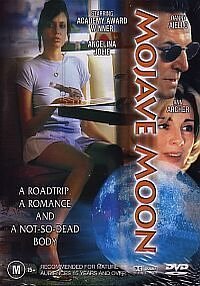
Mojave Moon Page #5
- R
- Year:
- 1996
- 95 min
- 119 Views
You know, you got to marry
somebody else.
Y...you don't want to?
Oh!
Oh!
Sh*t!
OK.
OK.
You know you're messing up
big time here?
So long!
So long, Kaiser.
So... going back to L.A.?
I'm not going back to L.A. tonight.
I'm gonna stick around here for a while.
- Really?
- Yeah.
So you're not going back with me?
- No.
- OK.
Goodbye, Al!
So Al, how are we getting back to L.A.?
Hey!
You wanna come with me, Gator Face?
Yeah. Cool!
Yes! Aaah!
What was that all about?
I think the movable home is...
giving off some of those wierd...
Wigwags?
Yeah.
I'd like to take a
better look at that moon.
It's up this way.
Translation
Translate and read this script in other languages:
Select another language:
- - Select -
- 简体中文 (Chinese - Simplified)
- 繁體中文 (Chinese - Traditional)
- Español (Spanish)
- Esperanto (Esperanto)
- 日本語 (Japanese)
- Português (Portuguese)
- Deutsch (German)
- العربية (Arabic)
- Français (French)
- Русский (Russian)
- ಕನ್ನಡ (Kannada)
- 한국어 (Korean)
- עברית (Hebrew)
- Gaeilge (Irish)
- Українська (Ukrainian)
- اردو (Urdu)
- Magyar (Hungarian)
- मानक हिन्दी (Hindi)
- Indonesia (Indonesian)
- Italiano (Italian)
- தமிழ் (Tamil)
- Türkçe (Turkish)
- తెలుగు (Telugu)
- ภาษาไทย (Thai)
- Tiếng Việt (Vietnamese)
- Čeština (Czech)
- Polski (Polish)
- Bahasa Indonesia (Indonesian)
- Românește (Romanian)
- Nederlands (Dutch)
- Ελληνικά (Greek)
- Latinum (Latin)
- Svenska (Swedish)
- Dansk (Danish)
- Suomi (Finnish)
- فارسی (Persian)
- ייִדיש (Yiddish)
- հայերեն (Armenian)
- Norsk (Norwegian)
- English (English)
Citation
Use the citation below to add this screenplay to your bibliography:
Style:MLAChicagoAPA
"Mojave Moon" Scripts.com. STANDS4 LLC, 2025. Web. 23 Feb. 2025. <https://www.scripts.com/script/mojave_moon_13929>.






Discuss this script with the community:
Report Comment
We're doing our best to make sure our content is useful, accurate and safe.
If by any chance you spot an inappropriate comment while navigating through our website please use this form to let us know, and we'll take care of it shortly.
Attachment
You need to be logged in to favorite.
Log In